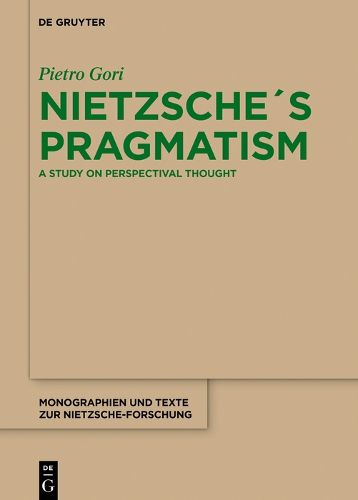Readings Newsletter
Become a Readings Member to make your shopping experience even easier.
Sign in or sign up for free!
You’re not far away from qualifying for FREE standard shipping within Australia
You’ve qualified for FREE standard shipping within Australia
The cart is loading…






During his late period, Nietzsche is particularly concerned with the value that mankind attributes to truth. In dealing with that topic, Nietzsche is not primarly interested in the metaphysical disputes on truth, but rather in the effects that the will to truth has on the human being. In fact, he argues that the faith in a value as such of truth influenced Western culture and started the anthropological degeneration of the human type that characterizes European morality. To call into question the value of truth is therefore necessary, if one wants to help mankind to find her way in the labyrinth of nihilism.
In this new addition to Nietzsche scholarship, Gori explores the origin and aim of the philosopher’s late perspectival thought by merging the theoretical with the historical approach, with a special focus on the epistemological debate that influenced Nietzsche. As a result, the book provides a contextual reading of the issue that supports the idea that Nietzsche’s attitude in addressing the problem of truth is, in a broad sense, pragmatic.
$9.00 standard shipping within Australia
FREE standard shipping within Australia for orders over $100.00
Express & International shipping calculated at checkout
During his late period, Nietzsche is particularly concerned with the value that mankind attributes to truth. In dealing with that topic, Nietzsche is not primarly interested in the metaphysical disputes on truth, but rather in the effects that the will to truth has on the human being. In fact, he argues that the faith in a value as such of truth influenced Western culture and started the anthropological degeneration of the human type that characterizes European morality. To call into question the value of truth is therefore necessary, if one wants to help mankind to find her way in the labyrinth of nihilism.
In this new addition to Nietzsche scholarship, Gori explores the origin and aim of the philosopher’s late perspectival thought by merging the theoretical with the historical approach, with a special focus on the epistemological debate that influenced Nietzsche. As a result, the book provides a contextual reading of the issue that supports the idea that Nietzsche’s attitude in addressing the problem of truth is, in a broad sense, pragmatic.